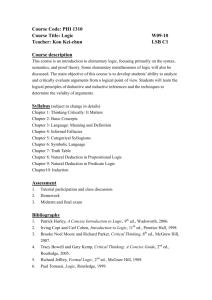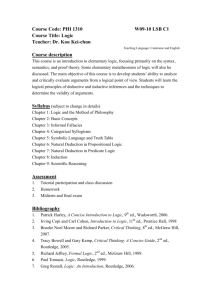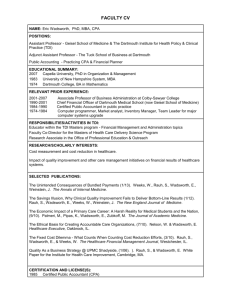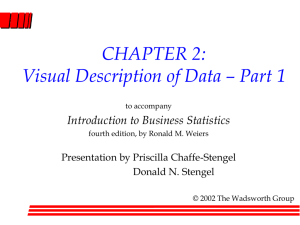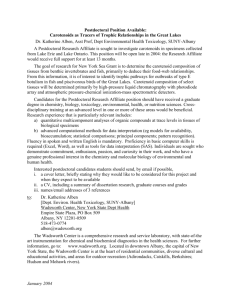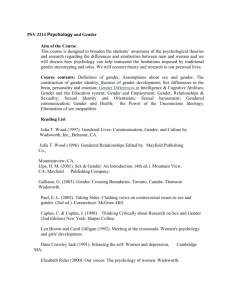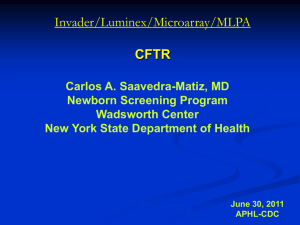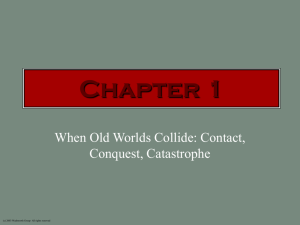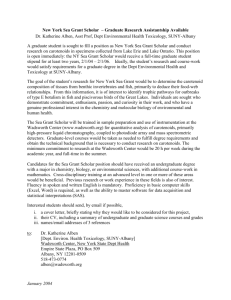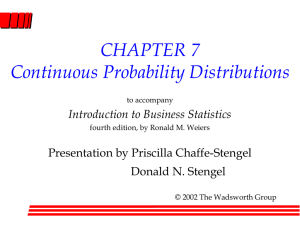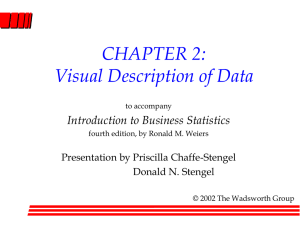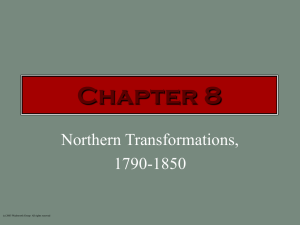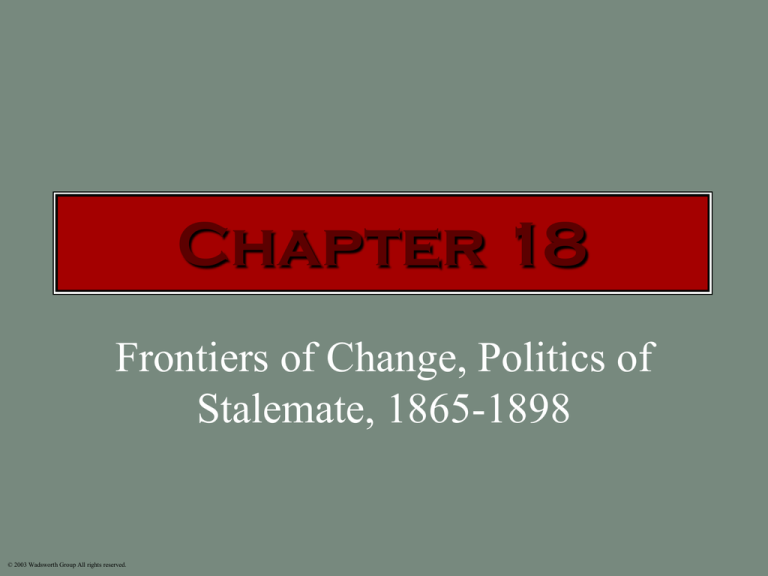
Chapter 18
Frontiers of Change, Politics of
Stalemate, 1865-1898
© 2003 Wadsworth Group All rights reserved.
Agencies of Westward Expansion
•
•
•
•
•
•
Transcontinental railroads
“The Great American Desert”
“Sodbuster"
“Bonanza farms“
Mining and ranching
Power of eastern capital and railroads
(c) 2003 Wadsworth Group All rights reserved
The Mining Frontier
• Gold, silver and copper mines
• Mining becomes high capitalized and
mechanized
• Western Federation of Miners
(c) 2003 Wadsworth Group All rights reserved
The Ranching Frontier
• Civil War creates viable market for free roaming
western cattle
• Sedalia, Missouri
• Chisholm Trail to Abilene, Kansas
• Railroad creeps west
• “Range wars“
• Decline of free range cattle
• Western Frontier as myth
– Buffalo Bill’s Wild West Show
– Frederick Jackson Turner
(c) 2003 Wadsworth Group All rights reserved
Beef Cattle in the United States, 1867-1897
(c) 2003 Wadsworth Group All rights reserved
The Last Indian Frontier
• Expansion of ranching and farming doomed
Plains Indians and buffalo
• “Policy of concentration”
• 5 “Civilized tribes” reconstructed
• Indians settled on land reconstructed from 5
“Civilized tribes”
(c) 2003 Wadsworth Group All rights reserved
Conflict with the Sioux
• Civil War loosens control of western
Indians
• Santee Sioux (1862)
– Chief Little Crow
• Lakota Sioux
– Little Big Horn (1876)
• Sitting Bull and Crazy Horse vs. George A. Custer
– Philip Sheridan
• "Ghost Dance" (1890)
– Wounded Knee
(c) 2003 Wadsworth Group All rights reserved
Suppression of Other Plains
Indians
• Cheyennes
– Chief Black Kettle
– Sand Creek massacre (1864)
• Buffalo
• Reservations
• Nez Percé
– Chief Joseph
(c) 2003 Wadsworth Group All rights reserved
The “Peace Policy”
• Helen Hunt Jackson
– A Century of Dishonor (1881)
– Ramona (1884)
• Grant proposes “civilization and ultimate
citizenship”
• Board of Indian Commissioners (1869)
• Dawes Severalty Act (1887)
– Gave individual Indians land, made tribal land open to
American settlement
– Indian non-cooperation as resistance
(c) 2003 Wadsworth Group All rights reserved
Mexican Americans
• Mexican Americans in West forced to adjust
to new order
– Many lost their land, political influence and
cultural identity
• Barrios
• Mexican legacy
– Mining and agricultural techniques
– Mining, community property, and water law
(c) 2003 Wadsworth Group All rights reserved
The New South
• “Lost Cause” mythology
– Thomas Nelson Page
• Election of 1880
– Winfield Scott Hancock
– James Garfield
• Henry Grady and the New South
(c) 2003 Wadsworth Group All rights reserved
Southern Industry
• Cotton textile mills
• James B. Duke and the American Tobacco
Company (1890)
• Railroad and iron industries
– Birmingham
• South dependent on North for much of the
capital to finance New South
(c) 2003 Wadsworth Group All rights reserved
Southern Agriculture
•
•
•
•
•
Crop lien system
Sharecropping
Increase in global cotton production
Emphasis on cash crop production
South becomes food importing region
(c) 2003 Wadsworth Group All rights reserved
Race Relations in the South
• Lynching
• Disfranchisement
–
–
–
–
Poll taxes, literacy tests, etc.
Williams v. Mississippi (1898)
Republican party almost disappears
White primary
• "Jim Crow" laws
– Plessy v. Ferguson (1896)
• Convict lease system
• Booker T. Washington
– Atlanta Exposition speech (1895)
(c) 2003 Wadsworth Group All rights reserved
The Politics of Stalemate
• Grave economic issues of U.S. from 18731893:
–
–
–
–
Rapid industrialization
Inadequate monetary system
Agricultural distress
Labor protests
• Despite these national crises, the political
parties remained mired in their partisan
pasts
(c) 2003 Wadsworth Group All rights reserved
Knife-Edge Electoral Balance
• 5 Presidential Elections between 1876-1892 were
most closely contested in history
• Political Stalemate:
– Divided government
– Even balance between 2 major parties
• Republicans “waved the bloody shirt”
• Geographic “availability” of presidential nominees
– Swing states: New York, Ohio, and Indiana
(c) 2003 Wadsworth Group All rights reserved
Civil Service Reform
• Republican factions
– Mugwumps, Stalwarts, and Half-Breeds
• James A. Garfield (1881)
– Charles Guiteau
– Chester A. Arthur (1881-1885)
• Pendleton Act (1883)
• Election of 1884
– Republican James Blaine
– Democrat Grover Cleveland
– Mugwumps defect to Cleveland
(c) 2003 Wadsworth Group All rights reserved
The Tariff Issue
• Cleveland and low tariffs
• Benjamin Harrison
– Protective tariffs
– Generous pensions to Union veterans to spend
surplus caused by protective tariffs
• McKinley Tariff (1890)
– William McKinley
– Negative voter reaction
(c) 2003 Wadsworth Group All rights reserved
Conclusion
• Frederick Jackson Turner
– “Frontier thesis”
• Panic of 1893 and resulting depression
(c) 2003 Wadsworth Group All rights reserved

